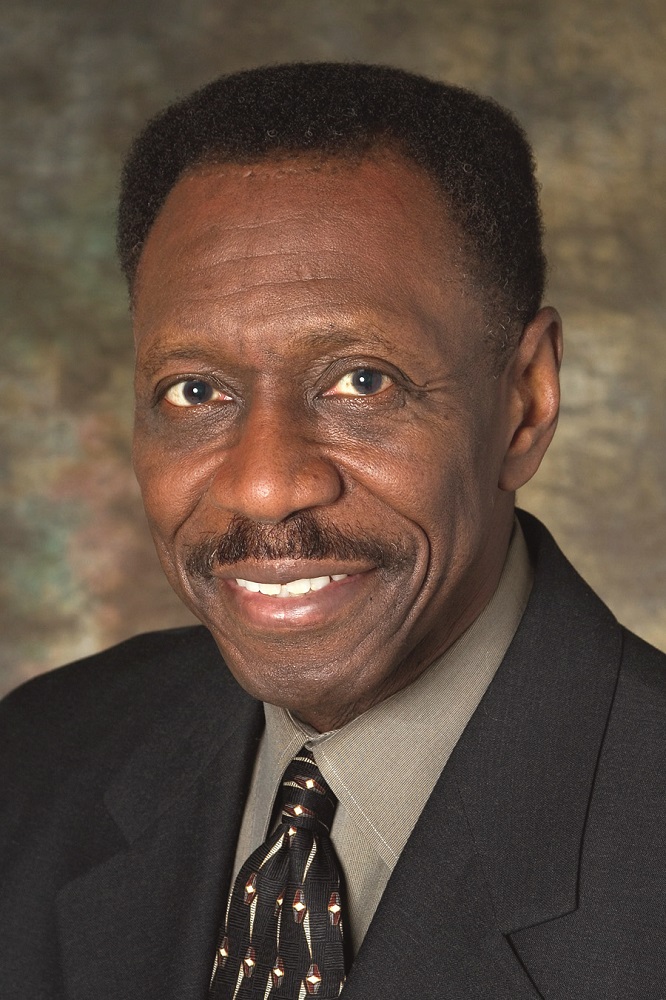The Content of His Character
William Bradford reflects on a distinguished career of prescient leadership and prophetic scholarship
Bill Bradford came of age in Civil Rights and culminated in Black Lives Matter.
During a long and distinguished academic career that spanned these iconic expressions of the struggle for a more equitable America, the professor emeritus of finance has made an outsized impact.
As the first Black dean to lead the Foster School of Business, he had the vision to expand access to MBA programs and champion a game-changing center that spurs the growth of small businesses owned by underrepresented minorities. As a groundbreaking researcher, he exposed racial bias and quantified economic disparities with hard data.
Bradford, who retired in July after 25 years at the Foster School and nearly 25 before that in higher education, became an empirical revolutionary. His work has diagnosed societal ills and prescribed viable solutions to build a nation in which we all rise together.
“Early in my career, I got the idea that if the United States is going to maintain its economic status in the world, then it’s going to have to use all of its resources as best as possible,” Bradford says. “And if there is a set of people who are systematically falling short of their potential, then all of us stand to lose. So, my focus has always been on how minorities can more fully participate in and contribute to the economy.”
Diagnosing disparity
William Bradford grew up in Cleveland, eventually choosing the academic life over the family business of ministry (his grandfather and father led Baptist congregations, as do two of his brothers).
He earned a BA in economics from Howard University and an MBA and PhD from Ohio State in 1971.
From the start, it was clear he was not going to be just another corporate finance researcher (though he did plenty of that).
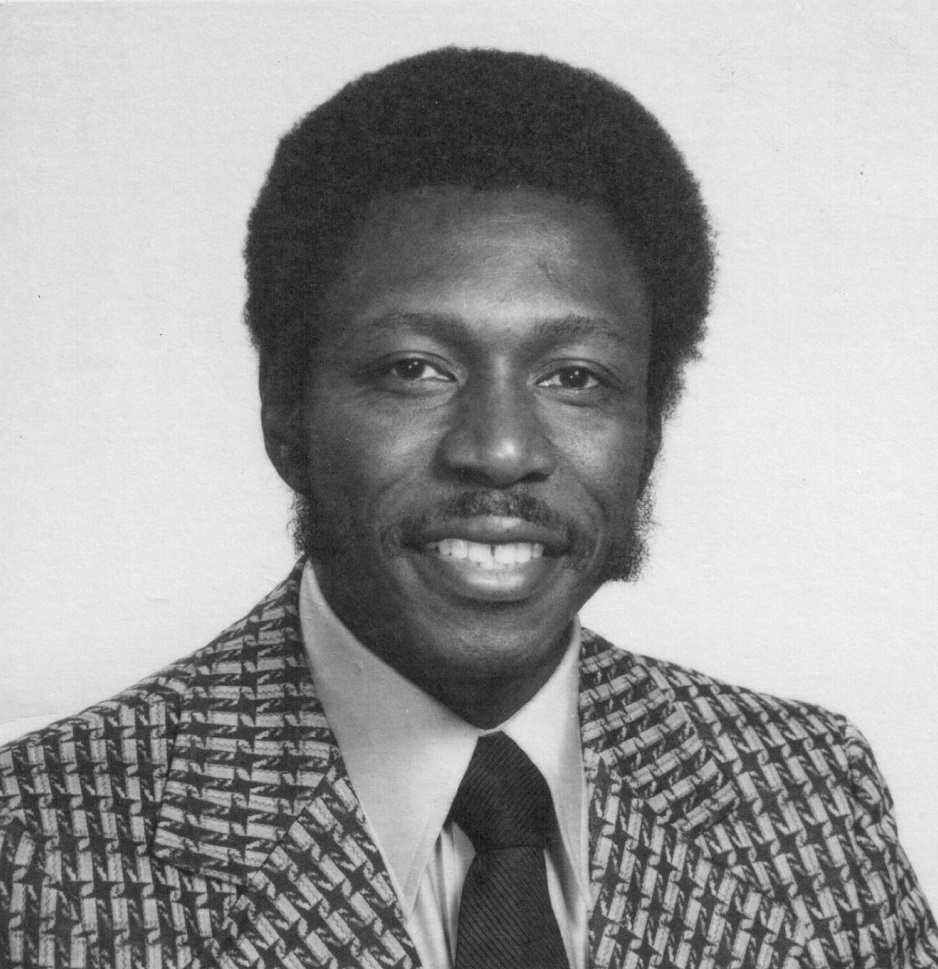
When Bradford began his career in the early 1970s, the economic imbalance that was so evident on the streets of America remained largely unmeasured. “There was a lot of upheaval at the time,” he recalls. “A lot of people were asking, what’s wrong with our society?”
As a rising scholar of finance and economics, he wanted to add to the conversation.
Throughout his years serving on the business faculties of Stanford and the University of Maryland, Bradford studied the economics of Black Americans. He began by identifying the shortcomings of banks and savings & loans that served Black communities. Then he took on the challenges facing Black-owned businesses and discerned keys to successful growth. Later, he examined the Black family wealth gap, and showed how successful entrepreneurship can reduce it. More recently, his research has demonstrated that Black entrepreneurs are under-funded by venture capital firms—despite yielding greater returns for those who take a chance on them.
“The consistent message that I have found in my research is that, when we take the extra steps to remove artificial constraints that inhibit minority-owned businesses,” Bradford says, “we see a positive multiplier effect on the whole economy.”
Of the community
After serving as chair of the finance department and associate dean at Maryland’s Smith School of Business, Bradford was appointed dean of the Foster School in 1994.
His five years in the office yielded great progress. The number of endowed faculty positions doubled under his watch. He green-lit the school’s Evening MBA Program, the first of many work-compatible MBA and master’s degree offerings to follow. And he introduced a real and enduring commitment to community.
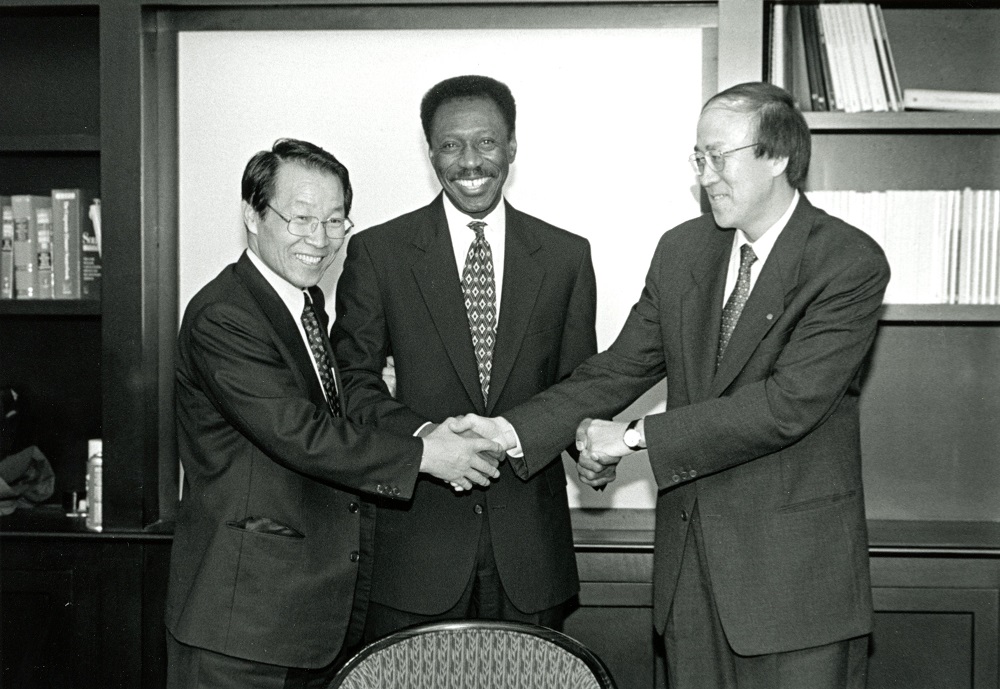
The grandest manifestation of this commitment is the Consulting and Business Development Center, established in 1995 by director Michael Verchot (MBA 1995) and professor emeritus Thaddeus Spratlen.
The concept was to deploy student teams to help accelerate the growth of small businesses owned by people of color, women, LGBTQ+ and people in under-served communities. Bradford was both champion and catalyst.
“What was exciting about Bill being appointed dean was that he brought with him 25 years of research and publishing on minority business development,” says Verchot. “He became a catalyst—someone who not only understood and supported what we were trying to do, but who had actually done some of the seminal work that we could refer to.”
Ascending America
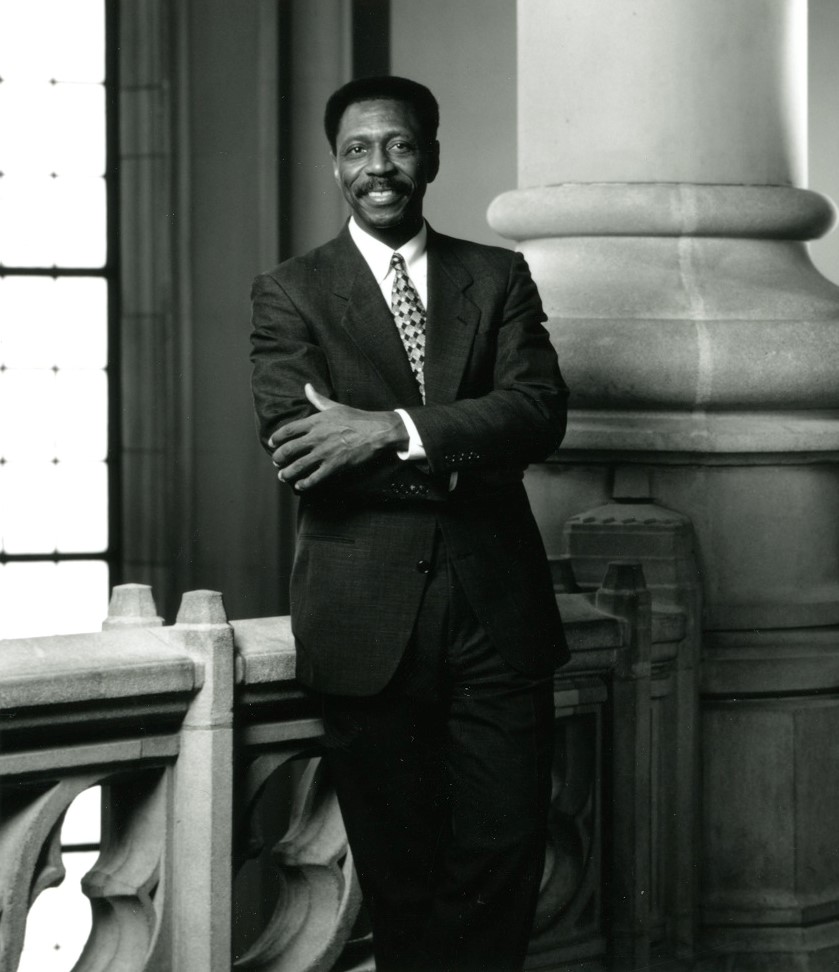
After completing his term as dean, Bradford returned to teaching and research, but continued as faculty director of the CBDC as it grew in scale, scope and significance—its consulting and management education programs have helped small businesses across the state generate more than $250 million in new revenue and create or retain more than 225,000 jobs.
Bradford also played an essential role in the center’s national expansion. At a CBDC-hosted conference in 2014, he delivered a definitive synthesis of existing research on minority business development. His study drew a clear conclusion: that these businesses under-perform versus white-owned businesses because of systemic gaps in access to management education, money (loans, investment, net worth) and markets.
Addressing these gaps became the “Three-M” model at the foundation of the Ascend program, a nationwide partnership of Foster and JPMorgan Chase. In 15 affiliated cities, local universities, market makers, lenders and development agencies collaborate to deliver greater access to the three Ms and accelerate the growth of under-served small businesses.
Multiplier effect
Bradford is a humble man, but his contributions have not gone unnoticed. He has been honored by the American Bankers Association, the Rockefeller Foundation, the Mellon Foundation and Ohio State University. In 2013, he became only the third academic to be inducted into the Minority Business Hall of Fame.
The annual William D. Bradford Minority Business of the Year award goes to the top business in the state of Washington owned by a person of color. The William D. Bradford Endowed Professorship is held by the Foster School’s first associate dean of inclusion and diversity, Christina Fong.
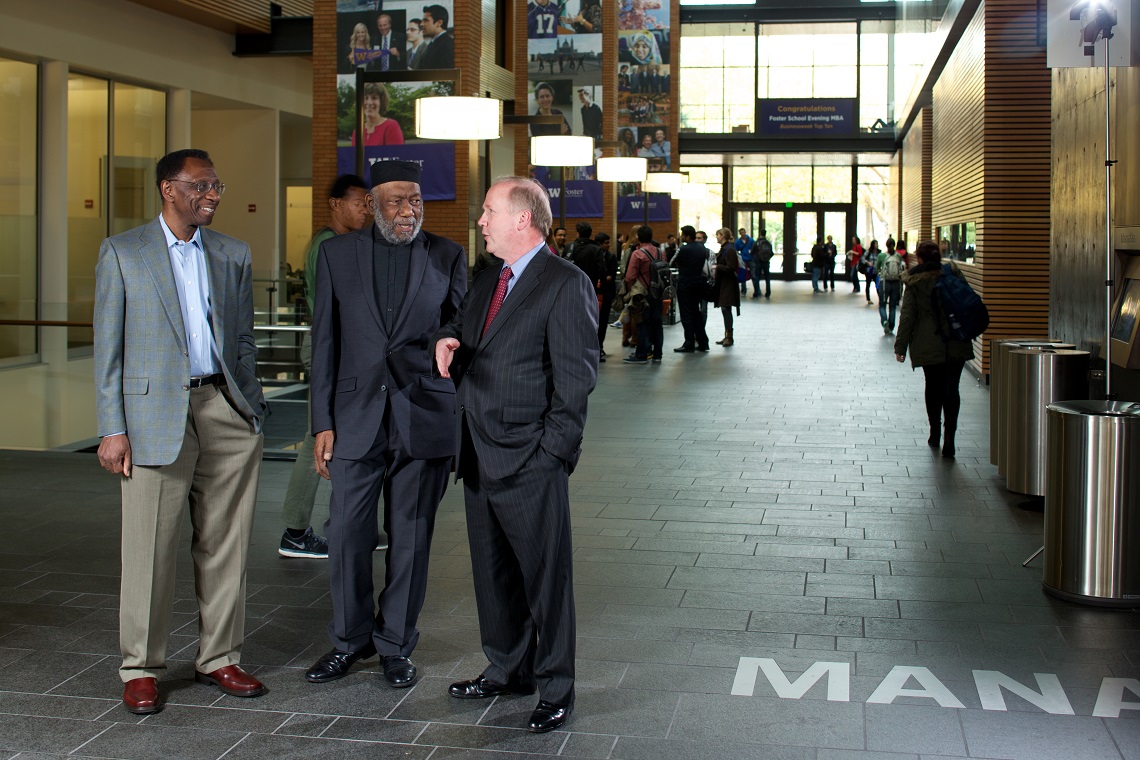
But Bradford is not one to rest on laurels—or in retirement. He continues to pursue new research and serve as faculty director of Foster’s Minority Business Executive Program, which is offered through the center that remains a proud centerpiece of his legacy.
“It’s enormously satisfying to see my research go from the scholarly literature to being implemented to help small businesses survive and thrive,” he says. “It’s been the highlight of my career to watch—and participate in—the development of the Consulting and Business Development Center as it has impacted first the region, then the state and now areas all over the country.”
Better, but still not good
After a lifetime of study and action, Bradford sees both progress and setbacks in the struggle for racial and economic equity. On the one hand, he says, there are many more Black students enrolled in undergraduate and graduate business programs today than there were when he was in school. And market opportunities have expanded for minority entrepreneurs.
Despite this, economic disparity persists. The average Black family in America has less than 10 percent the wealth of the average white family, he says. And the wealth gap is widening.
But Bradford’s faith in small business growth as the path to social and economic equity has not wavered.
“There is a long-term improvement in the fortunes of minority-owned businesses in the US economy. And minority business readiness has improved,” he says. “So, things are better, but still not good.
“There’s still work to do.”
Bradford is still doing it. And so are many more, thanks to his visionary scholarship and leadership.
Paying it Forward
This fall, the Foster School established the annual Bradford-Osborne Research Award, the first national recognition of scholarly research that can accelerate the growth of businesses owned by people of color. The award honors the legacies of founders Bill Bradford and Al Osborne, legendary scholars, leaders and advocates for minority business development at the UW Foster School of Business and UCLA Anderson School of Management, respectively.

